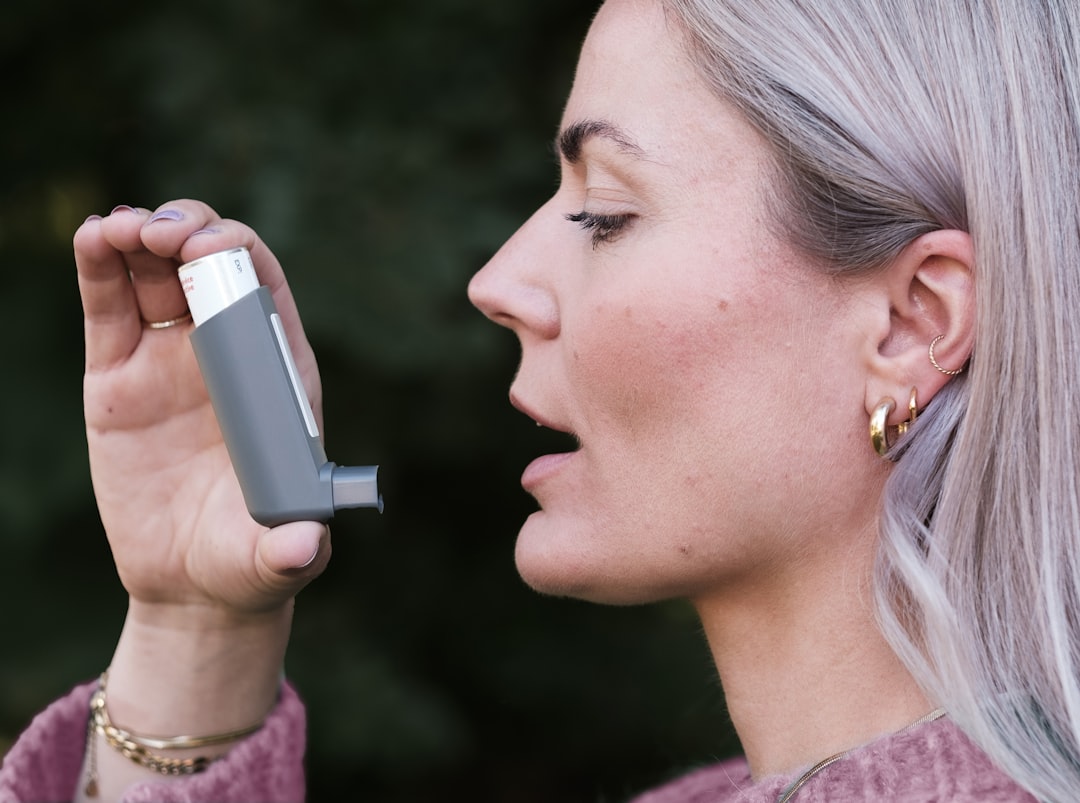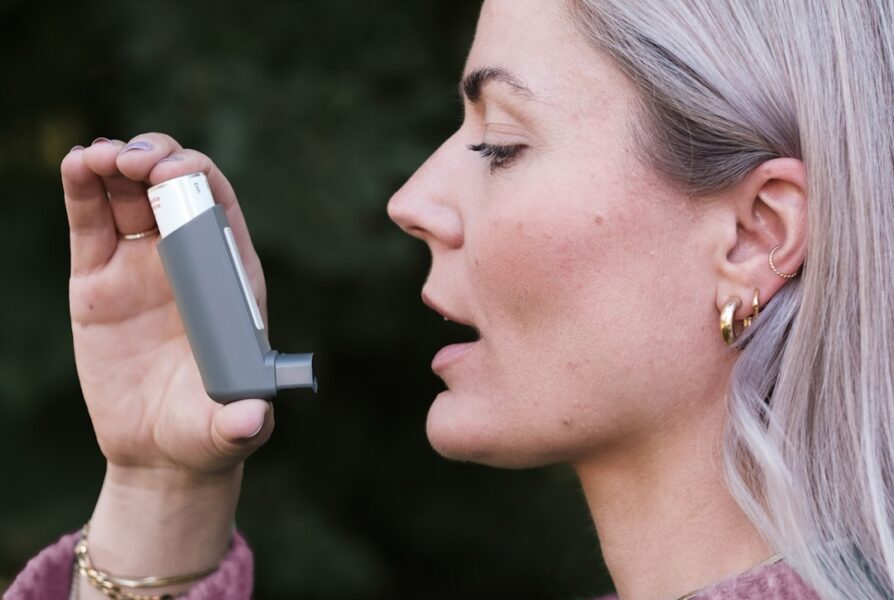For many, the trusty blue inhaler, often known by its brand name Ventolin, is a familiar companion in managing asthma symptoms. However, recent guidance from the MHRA reminds us that overuse of inhalers can increase the risk of severe asthma attacks. Balancing effective asthma management with responsible inhaler use is crucial. In this post, we’ll explore practical tips to avoid the pitfalls of overusing your blue inhaler, discuss the importance of having a spare for peace of mind, and highlight how our online clinic can support your health needs.
Understanding Blue Inhaler Use
Blue inhalers, commonly known as reliever inhalers, play a crucial role in managing asthma symptoms. Let’s explore their importance and the potential risks associated with overuse.
Importance of Ventolin for Asthma
Ventolin, the brand name for salbutamol, is a vital medication for many asthma sufferers. This blue inhaler works by relaxing the muscles in the airways, providing quick relief from asthma symptoms.
For those experiencing sudden breathlessness or wheezing, Ventolin can be a lifesaver. It acts rapidly, often within minutes, to open up constricted airways and ease breathing difficulties.
However, it’s important to note that while Ventolin provides immediate relief, it doesn’t address the underlying inflammation causing asthma symptoms. Regular use of a blue inhaler may indicate poor asthma control, highlighting the need for a comprehensive asthma management plan.
Risks of Overusing Inhalers
While blue inhalers are essential for managing acute asthma symptoms, overreliance can lead to serious health risks. Frequent use may mask worsening asthma conditions, delaying necessary medical intervention.
Overuse of blue inhalers can also lead to decreased effectiveness over time. This phenomenon, known as tachyphylaxis, occurs when the body becomes less responsive to the medication, requiring higher doses for the same effect.
Studies have shown that excessive use of reliever inhalers is associated with an increased risk of severe asthma attacks. It’s crucial to monitor your inhaler usage and consult your healthcare provider if you find yourself reaching for your blue inhaler more frequently than usual.

Effective Asthma Management Strategies
Managing asthma effectively involves more than just relying on your blue inhaler. Let’s explore some strategies to help you take control of your condition.
Developing a Personal Asthma Plan
A personal asthma plan is a tailored strategy to help you manage your condition effectively. It’s designed in collaboration with your healthcare provider to suit your specific needs and lifestyle.
Your plan should include clear instructions on how to:
- Recognise worsening symptoms
- Adjust medication as needed
- Respond to asthma attacks
- Know when to seek emergency care
Regular review and updating of your asthma plan is crucial. As your condition changes over time, so should your management strategy. This proactive approach can significantly reduce the risk of severe asthma attacks and improve your quality of life.

Responsible Inhaler Use and the NHS
Striking a balance between effective asthma management and responsible inhaler use is vital, particularly with the financial pressures on the NHS and the environmental impact of inhalers. When choosing inhalers, prescribers need to consider how to balance cost-effectiveness and environmental impact, such as opting for generic or lower-impact inhalers as well as clinical guidelines for the best management of your condition.
Benefits of Having a Spare Inhaler
Having a spare inhaler can provide peace of mind and ensure you’re always prepared for asthma symptoms. Here’s why it’s beneficial:
- Being ready for emergencies: A spare inhaler ensures you’re never caught without medication in case of sudden symptoms.
- Convenience: Keep a spare at work or school to avoid carrying your inhaler everywhere.
- Reduced anxiety: Knowing you have a backup can alleviate stress about potential asthma attacks.
However, it’s important to use your spare inhaler responsibly. It shouldn’t be seen as a reason to overuse your medication or delay seeking medical advice if your symptoms are worsening.
Remember to check the expiry dates on both your main and spare inhalers regularly. Expired medication may be less effective and potentially harmful.
Navigating NHS Inhaler Costs
The NHS faces significant challenges in managing the costs associated with asthma treatment. Here’s a breakdown of some key statistics:
| Asthma-related costs | Annual figure |
|---|---|
| NHS spending | £1.1 billion |
| Prescriptions | 65 million |
| Lost working days | 10 million |
To help manage these costs while ensuring effective treatment:
- Use your inhaler as prescribed
- Attend regular asthma reviews
- Consider using a spacer device to improve inhaler effectiveness
- Explore preventative treatments to reduce reliance on reliever inhalers
In summary this MHRA update warns about the higher risk of severe asthma attacks from overusing blue inhalers. It stresses the importance of using inhalers responsibly and managing asthma effectively to avoid too much reliance on reliever inhalers. The advice encourages patients to follow their treatment plans and regularly consult healthcare providers for the best asthma control and to reduce health risks.



